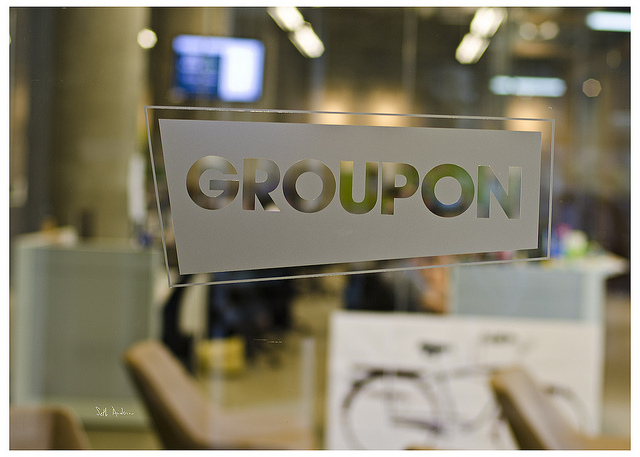Groupon Stock Shows Signs of Losing Luster
By Chuck Sudo in News on Nov 28, 2011 5:40PM
Remember how stock market analysts were praising how well Groupon stock performed during its Initial Public Offering earlier this month? Two weeks later, it looks like a wait-and-see approach may have been better served.
Groupon stock ended trading last week on a down note. Shares in the online deal-a-day pioneer fell below its initial starting price of $20 a share when trading closed last Wednesday, ending the day at $16.96. So far today, Groupon's shares are down slightly to $16.85.
The post-IPO performance of Groupon stock is serving as a reminder for investors looking for a quick profit just how much the stock market is a game of chance. Paul Bard, director of research for IPO advisory firm Renaissance Capital, told the New York Times:
“In the environment we’re in right now, investors are wary of risk, and so these less-seasoned companies will naturally face more selling pressure.”
Although some analysts have attributed the poor performance of Groupon's stock after its initial offering to factors such as concern about European markets and whether the U.S. economy can continue its slow recovery, the biggest factor affecting Groupon's trading, as critics consistently noted in the months leading up to its IPO, is its business model. Forbes Panos Mourdoukoutas noted that a combination of imitators and the types of offers Groupon is hawking don't make it a viable investment.
"While Groupon’s model is simple, it isn’t sustainable, for two reasons. First, as has been the case with other web-based companies like Netflix (NASDAQ:NFLX) and Open Table (NASDAQ:OPEN), Groupon is selling other companies’ products that have the upper hand in any deal negotiations. Second, they have plenty of competition from direct offerings from companies and from other web-based companies with a broad user base like Google (NASDAQ:GOOG), Amazon.com (NASDAQ:AMZN), and Yahoo (NASDAQ:YHOO), Expedia (NASDAQ:EXPE), Priceline.com (NYSE:PCLN) and Travelzoo (TZOO)."Compounding the problem is the product nature of Groupon deals. Most offers are in the discretionary category and services that are at the low end of the consumer list—like club memberships and cruises rather than dental paste and laundry detergents. This means that Groupon must spend heavily on advertising to push these products and services on the top of their list, which certainly has a negative impact on the company bottom line."
The continuing scrutiny over Groupon stock serves as a cautionary tale to other tech startups preparing for their IPOs such as Facebook, which is expected to go public next year.
